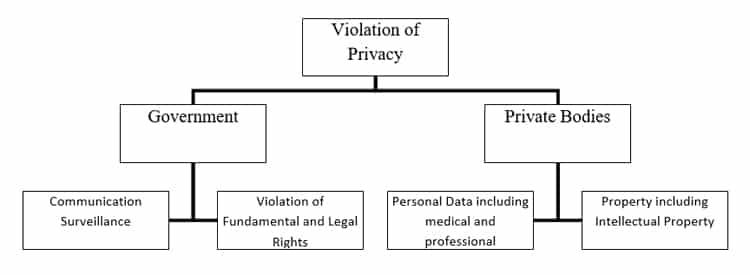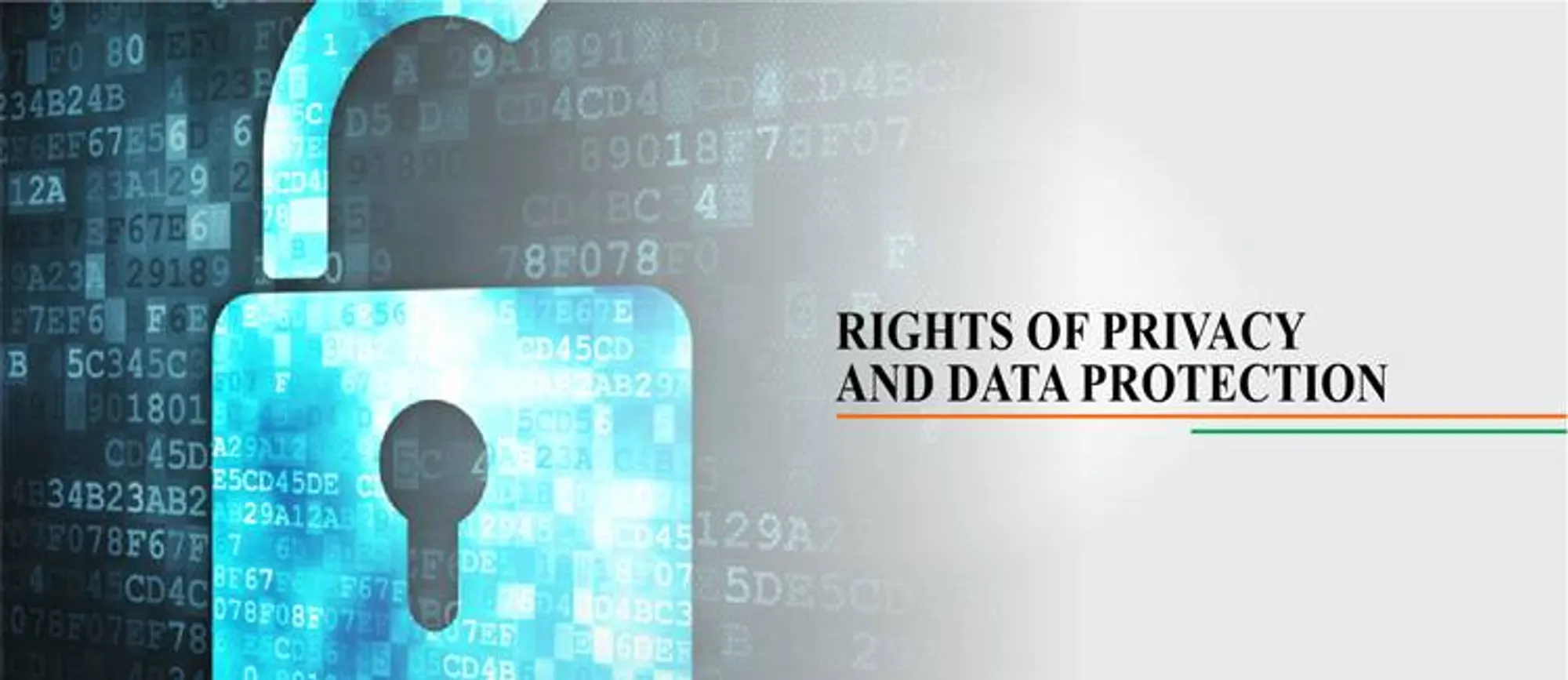Historically, privacy was almost implicit, because it was hard to find and gather information. But in the digital world, whether it’s digital cameras or satellites or just what you click on, we need to have more explicit rules – not just for governments but for private companies.
–Bill Gates
A civilized society is governed by laws and Law of Land of India ensures Right of Personal Liberty inclusive of Privacy to its every citizen. However, The recent incident of data leakage of UIDAI Details of cricketer M.S. Dhoni points in another direction where Absence of a Proper Laws against violation of Privacy strangulates this very right and Government fails to protect the privacy of its citizens from its own Department leave alone Private Players. The question that lingers is whether our society moving towards a free one or a totalitarian one.
Privacy In International Law and Growth in Indian Jurisprudence
Data protection is about safeguarding our fundamental right to privacy, which is enshrined in International and regional laws and conventions. Right of Privacy in International Laws finds its place in
- Article 12 of Universal Declaration of Human Rights (1948)
- Article 17 of International Covenant on Civil and Political Rights (to which India is a party) and;
- Article 8 of European Convention on Human Rights.
All of above provision of International Conventions are similar in crux if not entirely similar in words and provides for noninterference of Privacy of any Person except as provided by Law or in the Public Interest and National Security. They in simple words provide for providing against arbitrary interference with privacy, family, home or correspondence, and attacks upon personal honour and reputation of law and specifies for the right to the protection of the law against such interference or attacks.
As of now, over 100 countries around the world have enacted comprehensive data protection legislation with the European Union with most stringent and elaborative law, and several other countries are in the process of passing such laws. Other countries do have privacy laws applying to certain areas, for example for children or financial records, but do not have a comprehensive law.
Position in India: Constitution of India in express words do not provide for Privacy but with the Jurisprudence developed by Court and Judicial Activism it do find its place in Article 21 of Constitution of India providing for “No person shall be deprived of his life or personal liberty except according to procedure established by law” when Apex court included it in umbrella of Personal Liberty in KHARAK SINGH V STATE OF UP. Thus the position in India is that “the law does not determine what privacy is, but only what situations of privacy are afforded legal protection.”

Legal Remedies
Violation of Privacy by Government under the ambit of Reasonable restrictions and Procedure of Law is not uncommon and certain legislations as Indian Post Office Act, 1898 , Indian telegraphy act 1885and Information Technology Act 2000 endows power on Central and State Government to intercept and access data . The only recourse as of now is Judicial Activism and Jurisprudence developed by courts which provides certain guidelines and restrictions on government. Such guidelines extend from Right of Free Movement in Maneka Gandhi case to Reporting by Media in Destruction of Public & Private Properties v. State of A.P to Phone Tapping in R.M. Malkani v. State of Maharashtra.
One remedy exists in Constitution in the form of Article 300A which protects deprivation from property except by authority of the law. However, this right can be claimed only against the State and not against private individuals or employees and even then data shall also come under the ambit of Property, Interpretation of which again rests with Judiciary.
A Privacy Bill 2014 (A non-conclusive Draft being introduced since 2006) intends to bring both government and private organizations under its ambit and to provide for protection of personal data and information of an individual collected for a particular purpose by an organization, and to prevent its usage by another.
A few of Legal Provision exists that can be applied in case of Violation of Privacy and illegal use of Personal Data, out of which most important is Information Technology Act 2000 which provides penalty in case of leakage of Data and establishes rules and regulation for storage and sharing of Data. Other Such laws are
- The Copyright Act, 1957 that protects Intellectual Property rights in literary, dramatic, musical, artistic and cinematographic works.
- The Indian Penal Code, 1860 (“IPC”) can also be used as an effective means to prevent data theft as misappropriation of property, theft, or criminal breach of trust are offences and attract imprisonment and fine under the IPC.
- Self-regulatory processes such as the BS 7799 and ISO 17799 standards by Indian BPOs which provides for data that can be shared with and by employees.
- Non-Disclosure Agreements and Remedies in Contract Law and Specific Relief Act.
Conclusion:
Though General Law exists yet a need of Proper Legislations cannot be ignored and is the need of hour especially when India intends to move towards Digitization and Cashless Economy so that trust of Public can be maintained and rights guaranteed to them under constitution is protected of. Lack of Privacy also hampers free thinking and provides little room for Intellectual exploration and Creativity and No one like to live in such society. The right of Privacy is the Right most valued by a civilized man and such right shall exist not only against State but against whole World.

